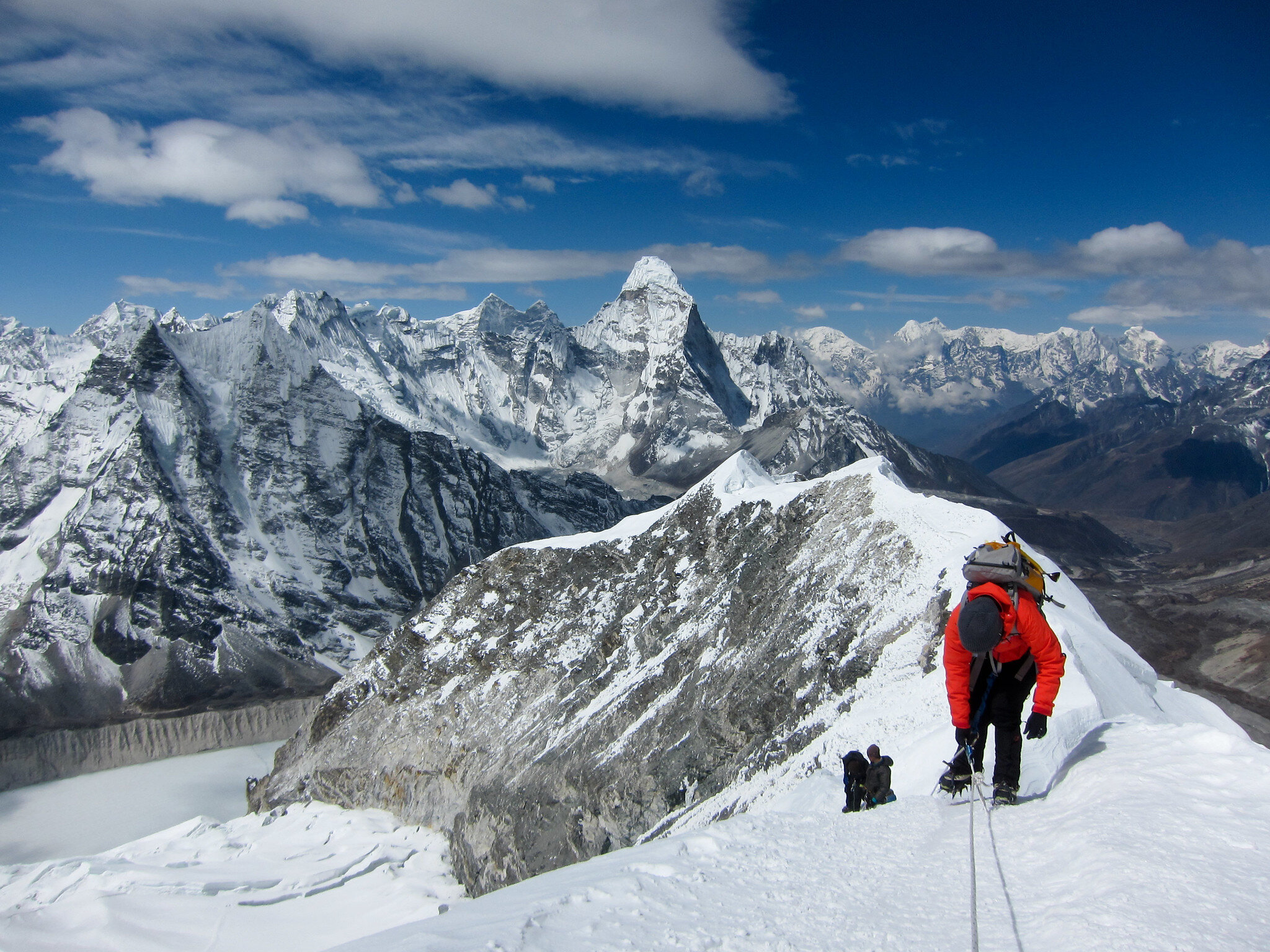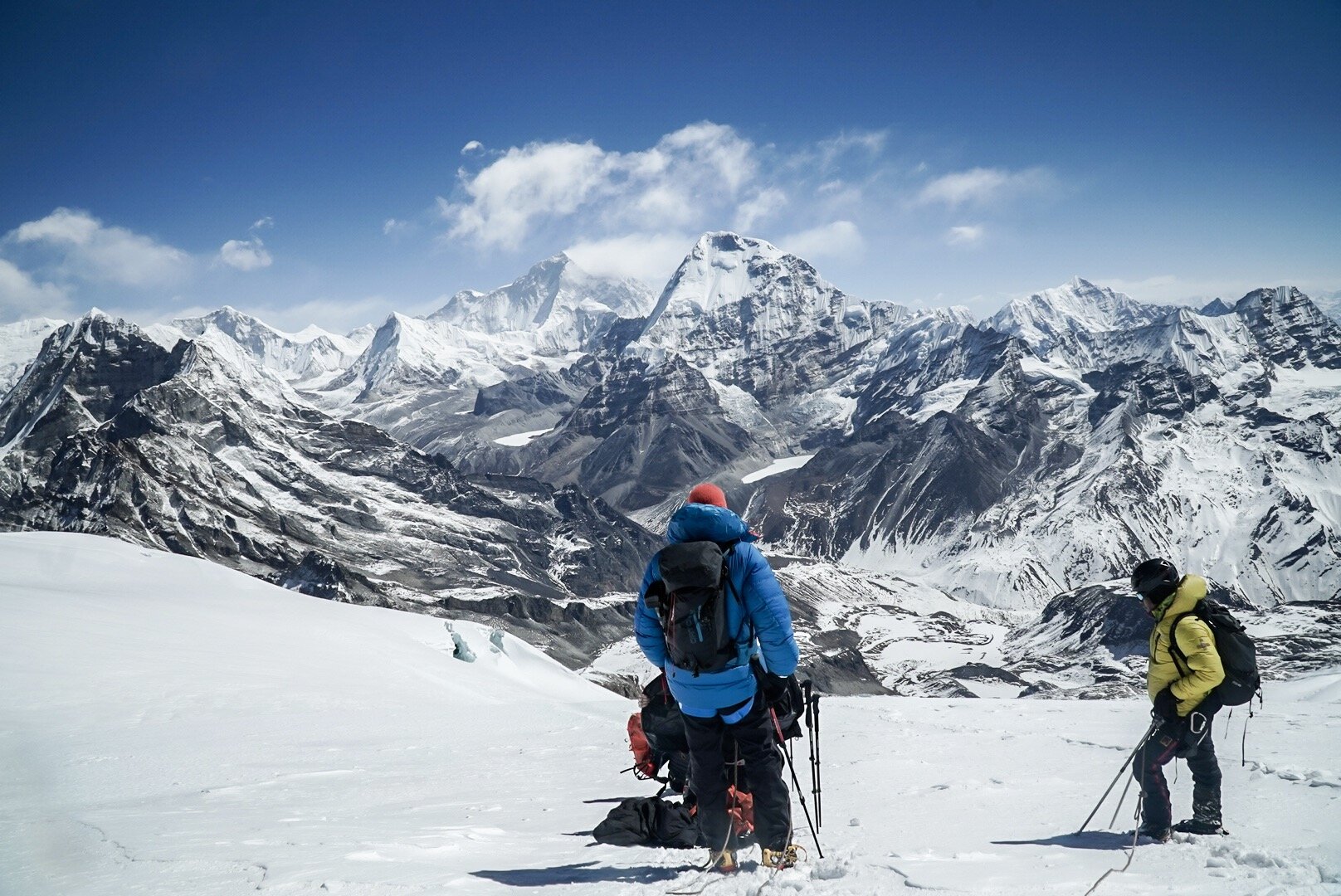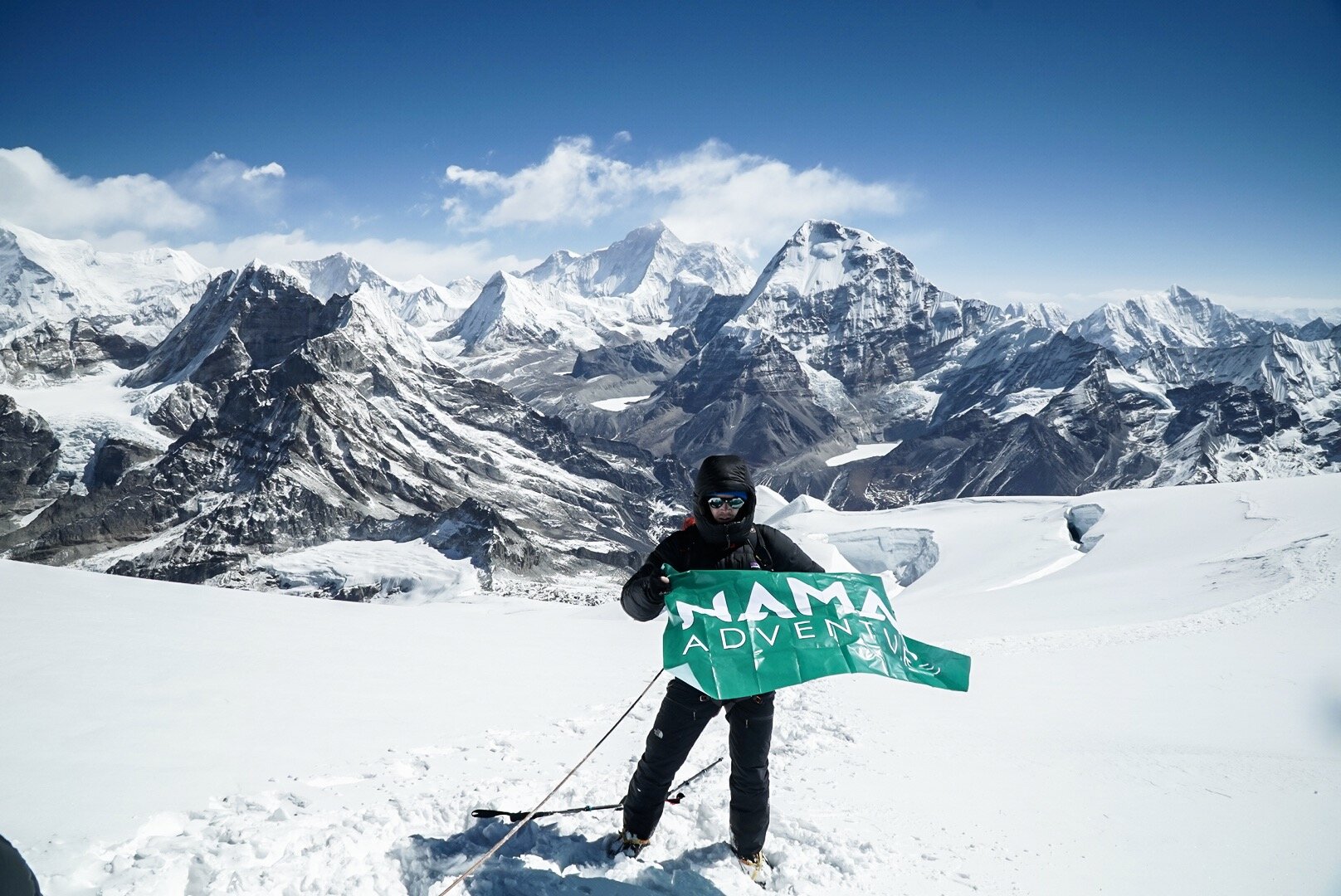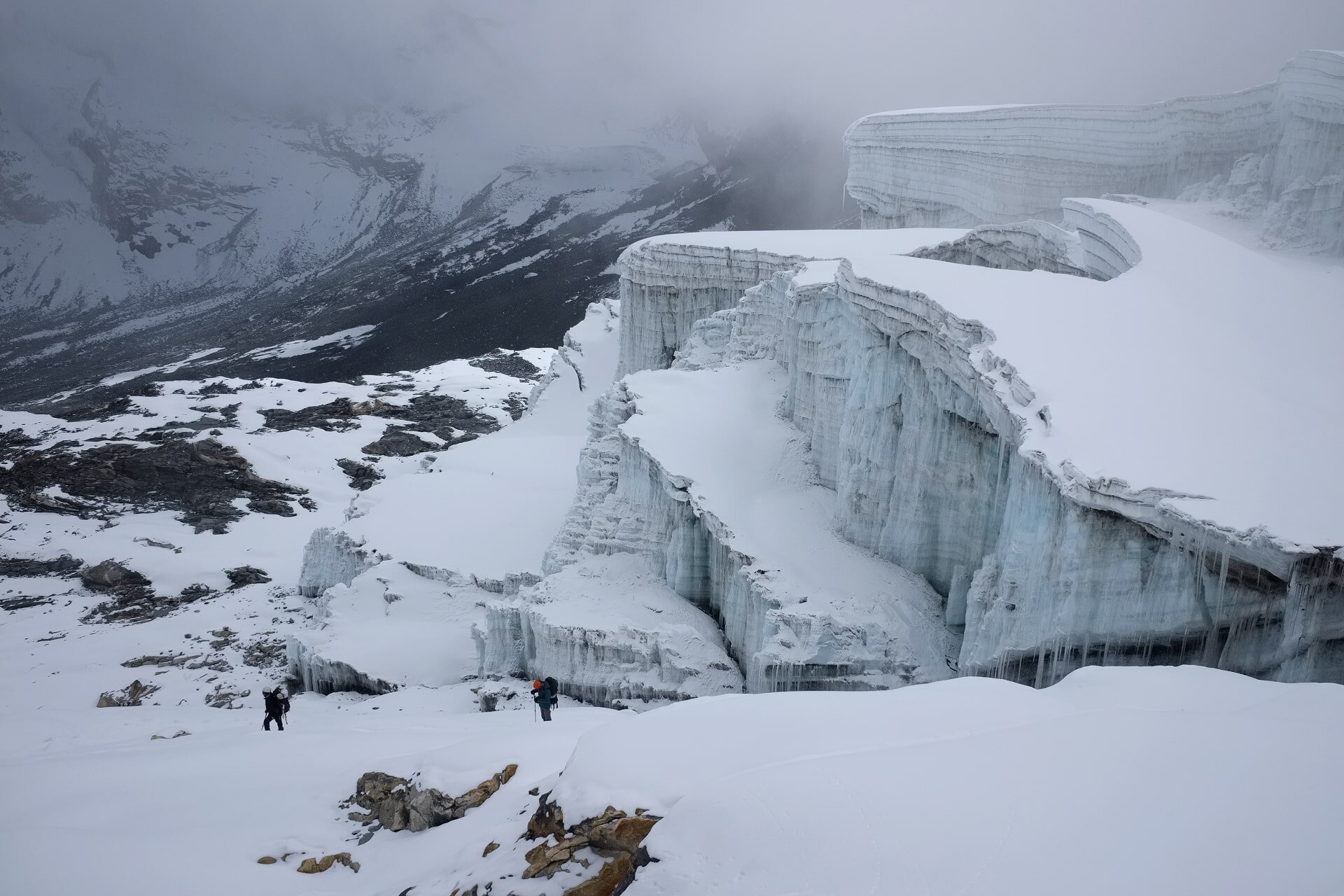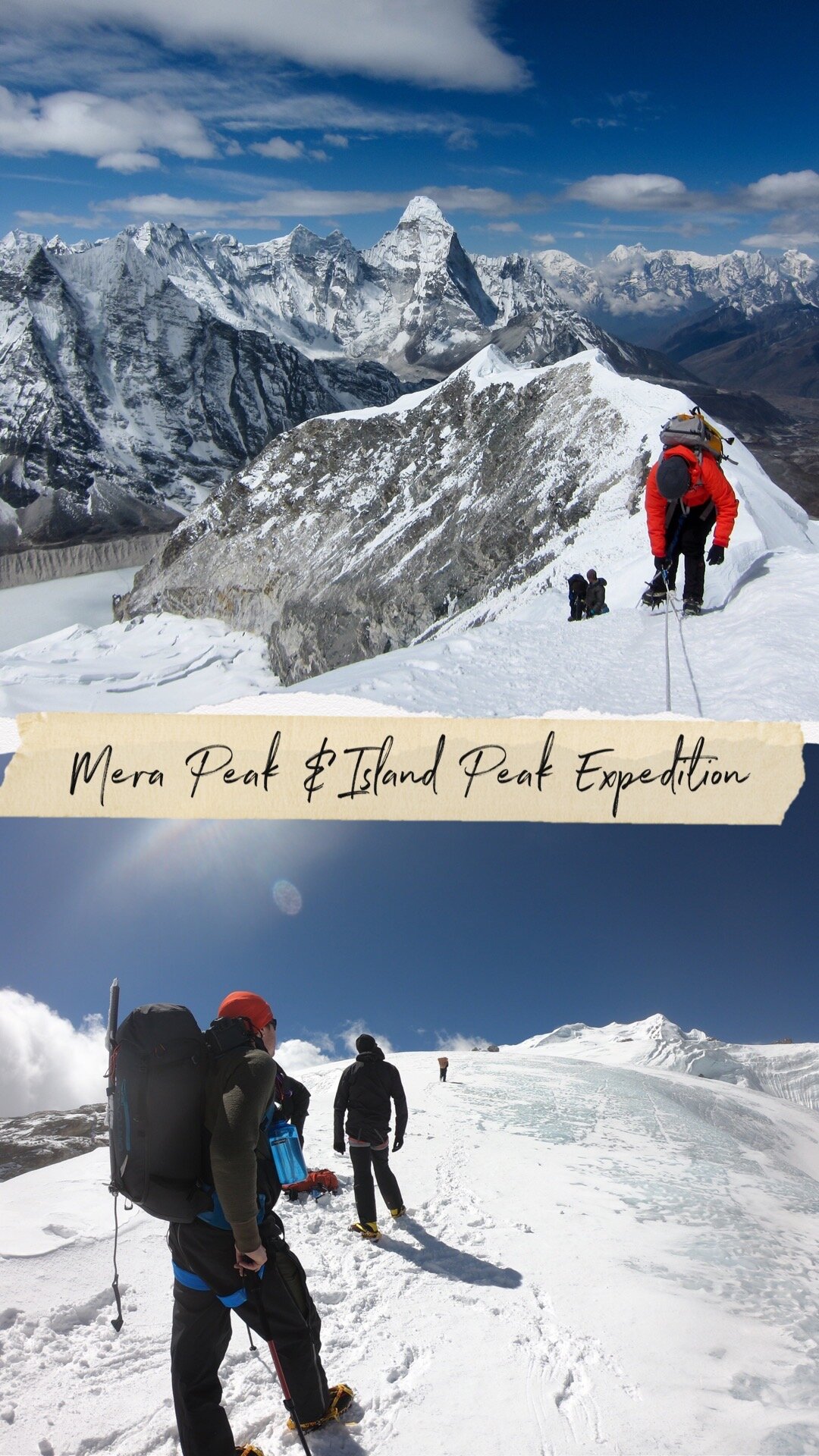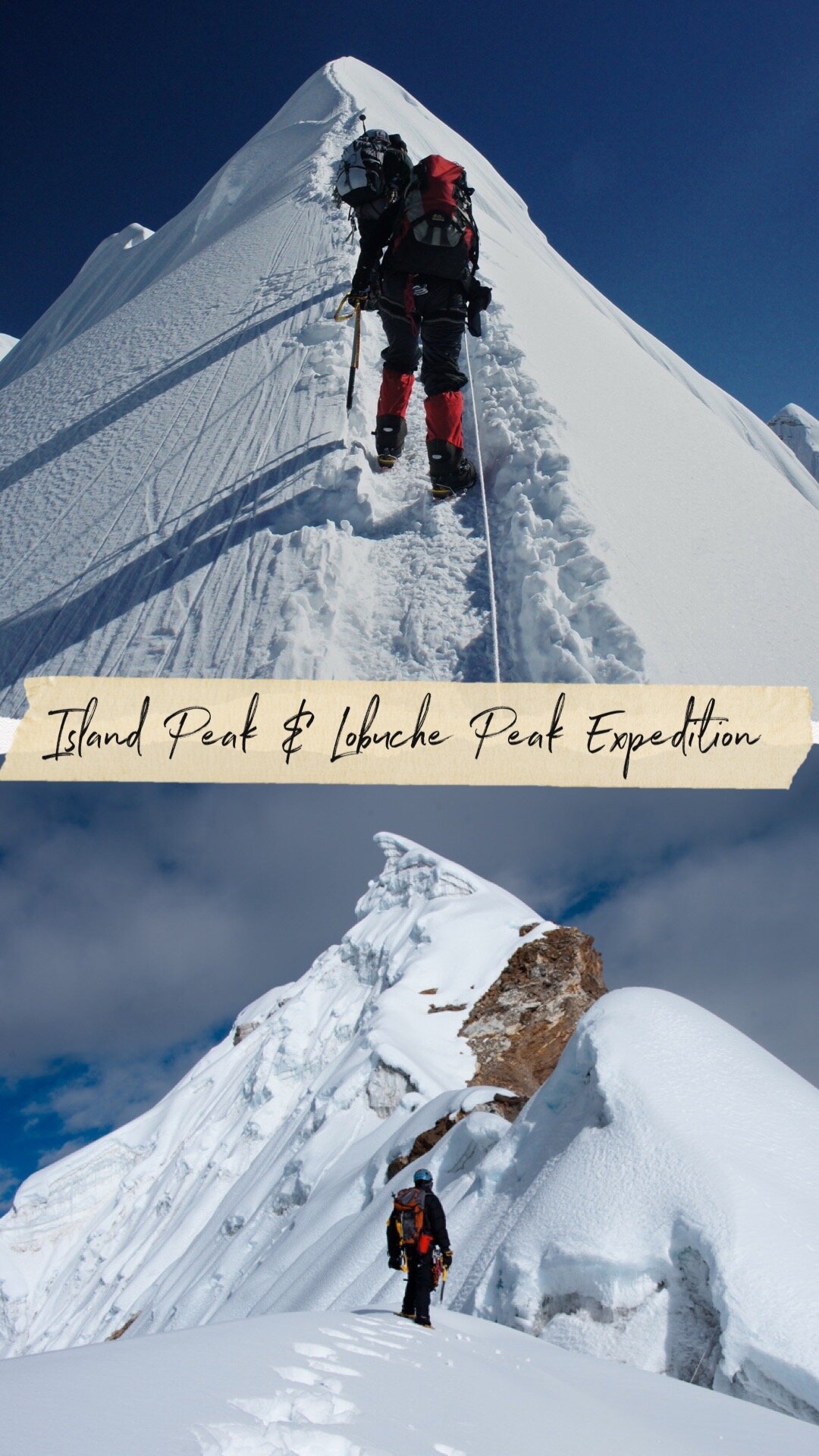Mera Peak or Island Peak - Namas Adventure
Mera Peak or Island Peak
Mera Peak or Island Peak? Which 6000M peak to plan when you first want to start climbing a peak in Nepal. Which is the peak best suited for my abilities or which peak should I climb? To make your decision easier for you, we have laid out the details of each peak, which will help you decide with your 6000M peak climbing. The other option will be to combine both magnificent Mera and Island Peak climb in your itinerary.
Mera Peak 6476 M
Mera Peak 6476M, highest 6000M trekking Peak in Nepal
Non-technical climb up to 6476M. No use of ropes, ice-axe, ascender, or ladders
Beginners/novice suitable peak
Base camp and high camp strategy
Located in the Makalu Barun region of Nepal
Remote and less popular compared to Island Peak
March-May (Spring) and September - November (Autumn) is the best time to climb this peak
360 Panoramic view of Nepal Himalayan range. Everest, Cho-Oyu, Makalu, Lhotse, and many other peaks are visible from Summit and descend to high camp.
Mera Peak is considered the highest trekking peak in Nepal. The trails break off from Lukla going in a different direction to the Makalu Barun region, which completely avoids the normal Everest trek trail usually packed by Everest base camp trekkers and climbers. So, you can expect less traffic from trekkers on Mera Peak trails. With the mountain itself is a non-technical climb, Mera peak can be a perfect mountain climbing experience for those climbers not wanting to use ropes or ascender/descender gears to climb to the summit. Simply rely on the guidance of your guide and your strength to climb the peak. Physically it can be demanding, as on your summit day you will have to ascend for 4-6 hours depending on your speed of climbing uphill. The view from the summit is awe-inspiring, as you will be able to witness a 360-degree view of the great Himalayas range. Everest, Lhotse, Makalu, Cho-Oyu, Kanchanjhunga, and other peaks are clearly visible right in front of you during clear weather.
Island Peak 6189M
The most famous 6000M climbing peak in Nepal
Technical climb with summit approach 90 degrees ascend. Use of rope lines, ascender, figure 8 to descend, and ladders to cross the crevasse gaps.
Beginners/novice technical climbing
Base camp and high camp climbing strategy
Located in Everest trail route, in Imja valley
Remote and most popular climbing and summited 6000M peak
March-May (Spring) and September - November (Autumn) is the best time to climb this peak
Narrow summit ridge and is also a perfect peak to learn technical climbing approach
Island peak shares the same trail as the Everest base camp route up to Dingboche. Island peak is the most popular and summited 6000M in the Khumbu region. Island peak is suitable for first-time beginner climbers and is a perfect mountain for climbers who wants to experience and learn technical climbing in the mountains. You will be using the steel ladders (like they use in Everest) to cross the crevasse openings and use ascenders on fixed ropes to climb onto the final steep section, a 90-degree vertical wall. When climbing you will be using ascender on the fixed ropes to climb all the way to the summit. Training will be given prior to your climbing by our Sherpa guiding team on all our climbing expeditions. Like any expedition, this peak is physically demanding and on your summit day from high camp, you will be climbing for 6 - 8 hours, depending on your speed of climbing.
Or, simply you can make it extra challenging by combing both Mera Peak and Island Peak itinerary. The beauty of this itinerary is crossing the Amphu Laptsa pass which is challenging and awe-inspiring.
Amphu Laptsa Pass 5800M
Arrival
Day 1 Kathmandu ( Equipment check, induction with Expedition leader )
Day 2 Lukla / Monjo
Day 3 Monjo / Namche Bazaar
Day 4 Acclimatisation day
Day 5 Namche Bazaar / Tengboche
Day 6 Tengboche / Dingboche
Day 7 Acclimatisation
Day 8 Dingboche / Chukung
Day 9 Chukung / Island Peak base camp
Day 10 IPBC / Island peak high camp
Day 11 Ascend to Island peak summit / Chukung
Day 12 Chukung / Lobuche East Base Camp
Day 13 Lobuche High camp 5600M (5 to 6 hours)
Day 14 Summit day 6118M / High camp or Lobuche village
(1 Day Contingency Summit day, in case of bad weather to summit Lobuche east )
Day 15 Gorakshep / Everest Base Camp
Day 16 Dzongla
Day 17 Gokyo Via Cho-la-pass
Day 18 Gokyo ri trek
Day 19 Macahharmo
Day 20 Macahharmo to Doles
Day 21 Dole to Namche Bazaar
Day 22 To Lukla
Day 23 Kathmandu
Day 24 Departure
Or Another option would be Island Peak and Lobuche East peak.
Three Peak challenge (Mera, Island, and Lobuche East Peak)
We have set departures for all three peaks every year. To book your Spring or Autumn climb please email our team or head to the relevant page on our website for detailed pieces of information.
If you do have any more questions, please ask us below in the comment section or you can email us at bookings@namasadventure.com and our team will get back to you as soon as they can.
Stay well. Challenge yourself. Dare great things and live your story.

